Israel Strikes Gaza After Lebanon Flare-up
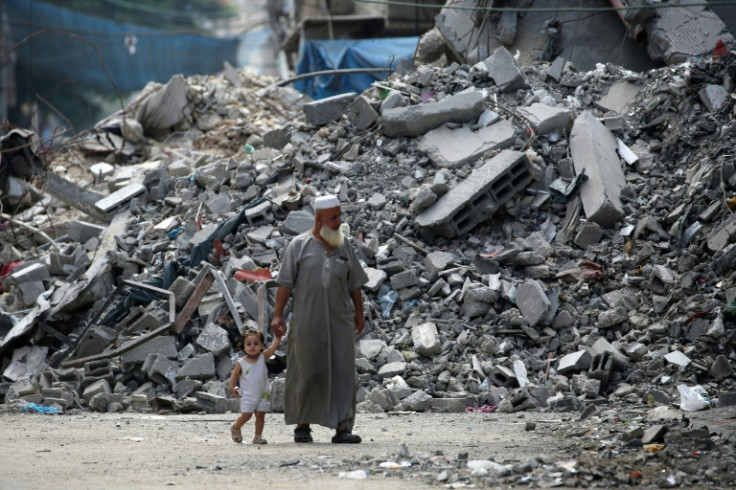
Israel's military struck the Gaza Strip on Monday a day after truce talks in Cairo coincided with a major but brief cross-border escalation involving Iran-backed Hezbollah in Lebanon.
The Gaza war, triggered by Hamas's October 7 attack on Israel, has drawn in Tehran-aligned armed groups across the Middle East, repeatedly heightening fears of a broader regional conflagration.
In the latest flare-up between Israel and Hamas ally Hezbollah, the Lebanese group on Sunday launched rockets and drones in retaliation for a top commander's killing as Israel carried out air raids the military said thwarted a larger attack.
Israel swiftly revoked a state of emergency declared early on Sunday, and Hezbollah said its operation was "completed".
Intense diplomacy in recent weeks sought to head off a broader retaliation for the late July killings of senior Hezbollah officer Fuad Shukr in an Israeli strike on Beirut, and of Hamas political leader Ismail Haniyeh in Tehran.
Western and Arab diplomats have stressed the urgency of securing a truce in Gaza and hostage release deal to calm regional tensions.
Mediators held meetings in the Egyptian capital Sunday but reported no breakthrough in months of protracted negotiations as the fighting in Gaza raged on.
Witnesses and AFP correspondents reported air strikes and shelling in Gaza City and other parts of the besieged Palestinian territory overnight, and Israel's military said it had struck militants in the south.
Medics said an air strike on a Gaza City house killed at least five people, with two rescuers telling AFP more victims may be buried in the ruins in Al-Rimal neighbourhood.
An Israeli military statement said troops had "eliminated" dozens of militants over the past day in the southern areas of Khan Yunis and Rafah, and near Deir al-Balah in central Gaza.
Israeli forces also struck a rocket launcher in Khan Yunis, the military said, after a launch late Sunday at central Israel claimed by Hamas.
Hamas's October 7 attack resulted in the deaths of 1,199 people, most of them civilians, according to an AFP tally based on Israeli official figures.
Israel's retaliatory military campaign has killed at least 40,405 people in Gaza, according to the Hamas-run territory's health ministry, which does not break down civilian and militant deaths. The UN rights office says most of the dead are women and children.
Out of 251 hostages seized by Palestinian militants in their attack, 105 remain in Gaza including 34 the Israeli military says are dead.
Hezbollah has traded near-daily fire with Israeli forces throughout the war, in what the group says is support for its Palestinian ally Hamas.
After weeks of retaliation threats, Hezbollah early Sunday launched what it said was part of its response to Shukr's killing.
Speaking hours after Hezbollah announced attacks on Israel with hundreds of rockets and drones, the group's chief Hassan Nasrallah said the "main target" was an intelligence base outside Tel Aviv, more than 100 kilometres (62 miles) from the Lebanese border.
Israeli air strikes at the same time hit more than 270 targets in Lebanon, "90 percent" of which were rockets "aimed at northern Israel", the military said.
Israeli Prime Minister Benjamin Netanyahu told his cabinet the strikes were "not the final word" in the campaign against Hezbollah.
Nasrallah appeared to suggest Hezbollah's retaliation for Shukr's killing may be over, saying "if the result is satisfactory" then its response "has been accomplished".
A Hamas official said that a delegation from the group met mediators in Egypt's capital on Sunday. It had also been planned that Israeli negotiators would go to Cairo.
The talks have been based on a framework laid out in late May by US President Joe Biden and a "bridging proposal" Washington put forth earlier this month with support from Qatari and Egyptian mediators.
A main stumbling block has been Israel's rejection of Hamas's long-standing demand for a "complete" Israeli withdrawal from Gaza. Israel says it must keep control of several strategic areas to stop Hamas from arming.
More than 10 months of war have left large parts of Gaza in ruins, ravaged its healthcare system and sparked a dire humanitarian crisis and warnings of famine.
A batch of polio vaccines entered Gaza on Sunday, Israeli authorities said. UN agencies have planned a mass inoculation drive after the first case there in 25 years was confirmed.
Successive Israeli evacuation orders have forced many Gazans, often already displaced at least once by the war, to move again.
"We have nowhere to go," said Maha al-Sarsak, who was initially displaced from Gaza City to the south, which she "had to leave", before reaching Al-Aqsa Martyrs hospital in Deir al-Balah.
"We came here... and now they want (us) to leave," she told AFP. With the hospital evacuated, "where will we go?"
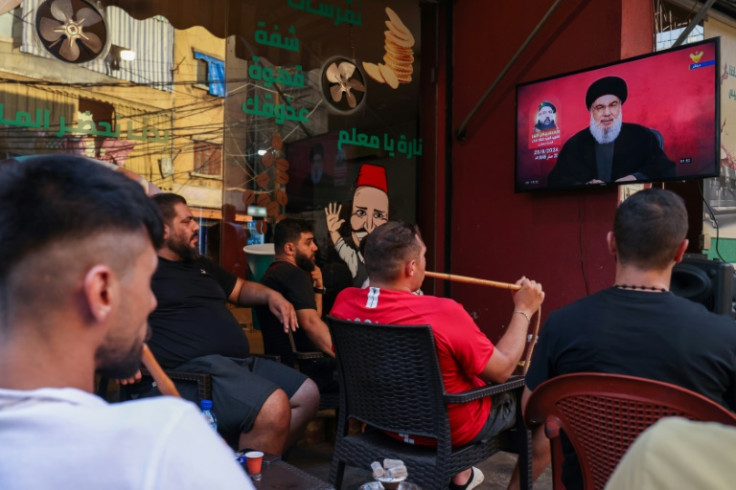
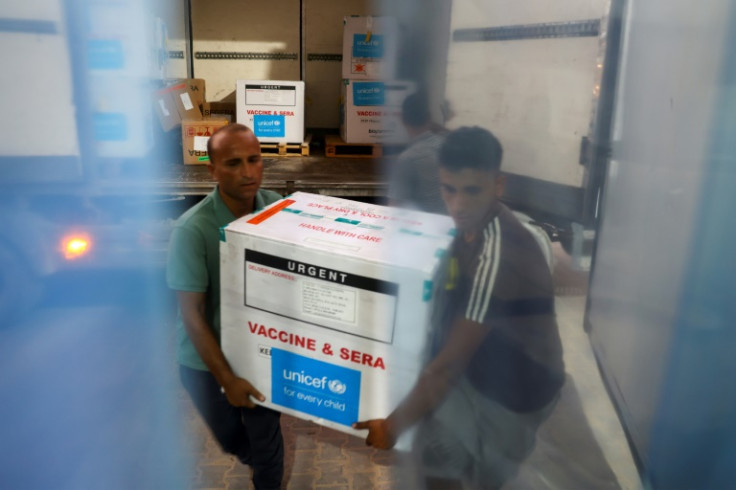
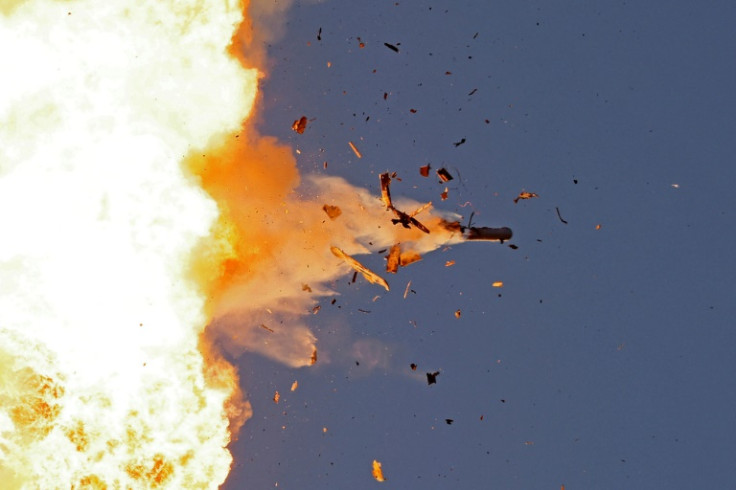
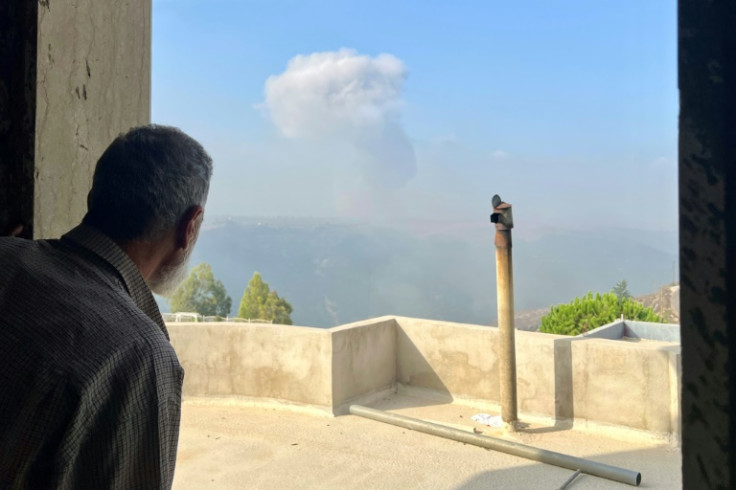
© Copyright AFP 2025. All rights reserved.





















